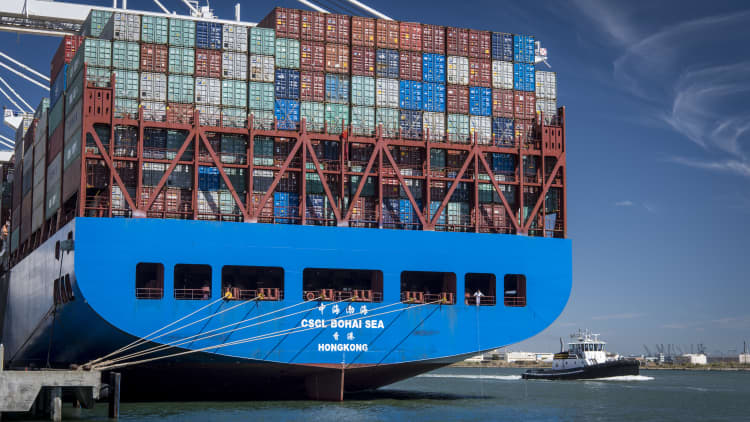
U.S. President Donald Trump's latest salvo in his ongoing trade battle with Beijing is likely to hurt the American economy more than China's, analysts told CNBC on Friday.
On Thursday, Trump said the U.S. will slap 10% tariffs on another $300 billion of Chinese goods beginning Sept. 1, adding to existing duties that Washington and Beijing have already levied on billions of dollars worth of each other's goods.
"It's obviously a very hard-line tactic but I think it's ... a sword at the throat of the American economy more than the Chinese economy," Andrew Collier, managing director of Orient Capital Research, told CNBC's "Street Signs" on Friday.
That sentiment was echoed by other experts, including Corrine Png, regional head of equities research at AIA Investment Management, who described Trump's move as "actually quite counterproductive."
She said the additional 10% tariffs, which primarily targets consumer-related products such as toys, laptops and mobile phones, "actually hurts the U.S. consumers more than China."
Collier, meanwhile, said the White House's latest move leaves the American economy in a situation where it could "get hit big time."
In fact, he added, the U.S. is at risk of a "double whammy" from the new levies. Firstly, they could impact U.S. consumption, which Collier noted corresponds to much more than half of American GDP. Secondly, he added, they may impact the employment situation in retail shops across the U.S.
"We're looking at a fairly significant weakness ... within the U.S., so I don't quite know what Trump's expecting to do here," Collier said.
Trump's tariff announcement on Thursday came after officials from both sides wrapped up the latest round of negotiations in Shanghai earlier this week. Those talks followed a tariff ceasefire agreed between Trump and Chinese President Xi Jinping at the G-20 summit in late June. The protracted trade war between the U.S. and China has rattled global markets for more than a year and raised concerns about the outlook for the global economy.
If those tariffs go into effect, that would significantly affect U.S. inflation and drag the the profitability of American multinational companies (many of whom make and export goods from China), Citi analysts wrote in a note.
They added that it's likely that China will "firm up its bottom lines and formally use the strategy of waiting it out" instead of giving in to U.S. demand.



